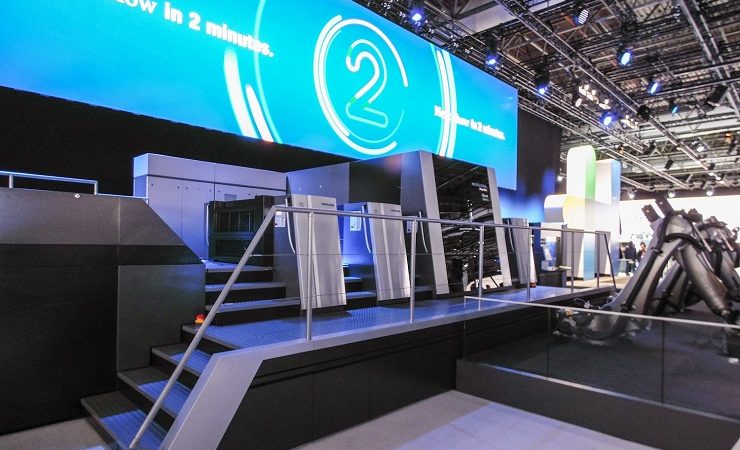Printing equipment manufacturer Heidelberg is implementing an action package to increase profitability, which will see it stop production of its Primefire 106 platform.
The management board of Heidelberg has adopted a ‘wide-ranging’ action package, previously announced, resulting in a short-term reduction in structural costs and generating long-term improvements in the company’s profitability. This will see it focus on the profitable core business and systematic streamlining of the cost base, geared towards delivering a €100 million improvement in EBITDA, excluding the restructuring result. At the same time, a return transfer of liquidity reserves from the trust fund will almost completely eliminate net debt, ‘significantly improving Heidelberg’s financial stability.’
In practical terms, this will see Heidelberg discontinue individual products that ‘earn far too little and significantly impact the company’s profitability’, with an annual loss stated at some €50 million. In digital printing, for example, the company noted that the market for Primefire 106 has grown much more slowly than anticipated, due to a ‘difficult industry and market environment’, according to Heidelberg. Similarly, in sheet-fed offset printing, the very-large-format product range has been falling well short of sales targets because of a fundamental change in the market structure for this sub-segment.
To improve overall profitability as soon as possible, production in both businesses is to be discontinued by the end of 2020 at the latest. The aim is to focus Heidelberg consistently on profitable activities in order to secure strong operational performance and profitability under its own power, also when times are difficult.
This is to be accompanied by comprehensive streamlining of production costs and structural costs. In total, the planned measures will affect up to 2000 jobs worldwide, and may also include plant closures.
Heidelberg noted this workforce reduction as, ‘an essential part of the long-projected action package for Heidelberg’s realignment, quite independently of what is currently a very difficult business situation due to the coronavirus pandemic.’
In view of current circumstances, Heidelberg stated that is conscious of its responsibility to the workforce and will work with employee representatives to ensure that the reduction in force is made as socially responsibly as possible.
Depending on the outcome of negotiations with the employee representatives as well as accounting charges in the financial year 2019/2020, the non-recurring expenses necessary to implement the action package are estimated to total about €300 million.
Heidelberg CEO Rainer Hundsdörfer said, ‘Heidelberg’s realignment is a radical step for our company that also involves some painful changes. As hard as it was for us to make this decision, it is necessary in order to put our company back on track for success.
‘Discontinuing unprofitable products enables us to focus on our strong, profitable core. This is where we will further extend Heidelberg’s leading market position by leveraging the opportunities of digitalisation. Going forward, we will continue to provide our customers worldwide with technologically leading digital solutions and services across the board.’
The Primefire platform was introduced in 2016 and shown at that year’s drupa (pictured, top). Germany’s colordruck Baiersbronn was the first to take one of the B1 inkjet digital package printing presses, with one of the most recent to put one of the presses into action being Japan’s Kyoshin Paper & Package.




